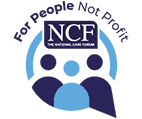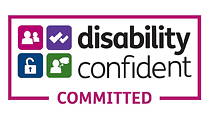What does the cost cover and what extras do we have to pay for?
The fees at Coverage Care can vary depending on the specific home and the level of care required.
Generally, the costs can include:
- Residential Care: This typically covers all accommodation costs including laundry (not dry cleaning) meals, and personal care and support and organised activities.
- Nursing Care: This includes all the services of residential care plus 24-hour medical care provided by registered nurses. People assessed as needing nursing care qualify for Funded Nursing Care contribution (FNC) follow this link for further information NHS-funded nursing care practice guidance - GOV.UK (www.gov.uk)
- Dementia Care: Specialised care for residents living with dementia, which may include additional care and support, environmental considerations and activities tailored to their needs.
- Respite Care: Short-term care to give regular caregivers a break. The cost can vary but is generally in line with the weekly rates for residential or nursing care.
- Additional Services: Our homes arrange for external professionals to visit regularly to support our residents with hairdressing, chiropody etc and residents pay these professionals directly.
For the most accurate and detailed information, it’s best to contact the specific Coverage Care home directly. They can provide a detailed breakdown of fees and any additional costs.
What are the staffing Levels at Coverage Care and how do you train your staff?
Coverage Care determines staffing levels based on the needs of our residents to ensure high-quality care for all. We regularly review the care needs in the home(s) and the dependency of the people we support to ensure we meet everyone's care and support needs.
All of our staff undertake a robust training programme starting with a comprehensive induction, mandatory training and role specific specialised training. We train our staff to understand and support people with medical conditions,e.g diabetes, parkinsons disease, heat failure, dysphagia and strokes.
We have developed a dementia training programme delivered to every staff member starting with awareness and progressing to more advanced training and development for care staff and nurses.
How do you train your staff, and do they receive any specialist training?
Training is a continuous process for all staff, and we invest heavily in making sure our staff have the right knowledge, attitude and skills.
This training is supported by experienced internal managers and qualified external professionals.
We do this to ensure the staff working in our homes have the skills and confidence to care for those entrusted into our service each with different individual needs.
We also ensure our staff training reflects the very latest trends in medical knowledge, client welfare and communication skills.
For the most accurate and detailed information, it’s best to contact the specific Coverage Care home directly. They can provide you with their staffing levels and how they ensure residents receive the care they need.
Can you explain why a deposit must be paid and what happens when we run out of money?
We do charge a deposit which is explained below
Before the Start Date, you will pay us a refundable deposit of £1,000 plus an amount equal to two weeks fees. This deposit is split as follows:
- 1.4.1 £600 to protect us from the costs we incur if we reserve the room for your exclusive use and you then choose not to move in (only payable if the agreement is signed more than one day in advance of moving in) ; and
- 1.4.2 £400 to protect us in the event of any damage you have caused to your room (beyond normal wear and tear) for long stay residents only.
- 1.4.3 Two weeks fees to protect us in the event you fail to pay some or all the Fee, this amount will be capped at the length of stay for respite.
- 1.5 Once you move into the Home, we will refund £600 or credit it against your future Fees. We will process this refund within 14 days of you moving into the Home.
- 1.6 If you cancel this Agreement before moving in we will keep a sum equal to the Fees for each day the room was held for your exclusive use (calculated on a daily basis) up to a maximum of £600 and process this within 14 days of your cancellation.
What happens when we run out of money?
In England, the upper capital threshold for getting help with care costs is £23,250. This means that if your capital (for example, your savings) is more than £23,250, you'll have to pay your own fees as a 'self-funder'. If your capital is less than £23,250, the council may provide you with financial support, and you may have to pay a contribution from your income. (Age Uk) click here for details.
If you run out of money to pay for care at Coverage Care, there are several options and steps you can take:
- Local Authority Funding: In the UK, if your savings and assets fall below a certain threshold (currently £23,250), your local council may start contributing to your care costs. Once your assets fall below £14,250, the council will cover your care costs fully.
- Financial Assessment: You will need to undergo a financial assessment by your local council to determine how much they will contribute. This assessment considers your income, savings, and any other assets.
- Deferred Payment Scheme: If you own a property, you might be eligible for a deferred payment scheme. This allows you to use the value of your home to pay for care costs without having to sell it immediately.
- NHS Continuing Healthcare: In some cases, if your care needs are primarily health-related, you might qualify for NHS Continuing Healthcare, which is fully funded by the NHS.
- Charitable Support: Some charities and organisations offer financial assistance for care home fees. It’s worth exploring these options if you find yourself in financial difficulty.
- Long-term Care Insurance: If you have long-term care insurance, it can help cover the costs of care when your personal funds run out.
If you have any queries please speak with the manager at the care home of your choice.
For more information: Paying for care | Working out the costs of elderly care | Age UK
What are the respite terms - such as minimum stay.
We do not have a minimum requirement for respite stays although a week enables the person to settle into the home and start to build a relationship with the staff and other residents. Please contact the home of your choice to discuss your needs.
Can I bring in my own furniture and pictures into the Home and who will put them up?
Yes, at Coverage Care, residents are encouraged to bring their own furniture and personal items, including pictures, to make their space feel more like home.
Here are the steps and considerations:
- Approval: Before bringing any large items, it’s best to get approval from the care home management. They can provide guidelines on what is allowed (fire safety) and any space limitations.
- Safety and Space: Ensure that the furniture and items you bring do not obstruct walkways or pose any safety hazards. The care home staff can help assess this.
- Installation: For hanging pictures or setting up furniture, the care home staff can usually assist. However, it’s a good idea to confirm this service with the specific home.
Can I install a telephone and do you have wifi to support the use a laptop / IPad etc?
Yes, all Coverage Care homes provide WiFi for residents. This enables residents to stay connected with family and friends, access online services, and enjoy entertainment options.
Coverage Care generally allows residents to install personal telephones in their rooms.
Here are the typical steps and considerations:
- Approval: You will need to get approval from the care home management. They can provide specific guidelines and any restrictions.
- Service Provider: Choose a telephone service provider and arrange for the installation. The care home staff can assist with coordinating access for the installation team.
- Installation: Ensure the installation is done safely and does not interfere with the care home’s infrastructure.
- Costs: Be aware that any costs associated with the installation and ongoing service will be your responsibility.
What times are the meals?
Mealtimes at Coverage Care homes typically follow a regular schedule to ensure residents receive balanced nutrition throughout the day. In addition to these main meals, snacks and drinks are available throughout the day and night to ensure residents have access to nourishment and hydration whenever they need it.
Please be aware that many of our homes have protected mealtimes in place to ensure that residents have a dedicated mealtime, free from as many interruptions as possible. Protected mealtimes help create a quiet, relaxed atmosphere for residents to enjoy their meal. Protected mealtimes will vary between homes but will generally be:
- Breakfast: 8am- 10am
- Lunch: 12:00 – 14:00
- Dinner/ Supper: 17:00 – 19:00. Please check the individual home for any protected mealtimes and please refrain from visiting during these times.
How will we know what activities are available and when in the home?
At Coverage Care, activity schedules are shared with residents and their families in several ways:
- Monthly Calendars: Our homes provide a monthly calendar of activities. This can be displayed in common areas, given to residents, or sent to families via email.
- Notice Boards: Activities are often posted on notice boards within the home, in communal areas where residents and visitors can easily see them.
- Newsletters: Some of our homes produce newsletters that include information about upcoming events and activities. These newsletters can be distributed both physically and digitally.
- Staff Communication: Our staff can inform residents and their families about daily and upcoming activities. You can always ask the staff for details if you’re unsure.
- Website and social media: Check our website or the home’s social media page for updates on activities and events.
Do we need to put name tags on clothes or does the home do it. Does this incur a cost?
At Coverage Care, we recommended all clothes are labelled to prevent them from getting lost or mixed up with other residents’ belongings.
Here are some options:
- Self-labelling: You can label the clothes yourself using fabric markers, stick-on labels, or iron-on labels. This is a cost-effective method and ensures that all items are clearly marked.
What time can we visit?
We do not have visiting times in the homes - you are welcome to visit at any time however we operate "protected mealtimes" to ensure that residents have a dedicated mealtime, free from as many interruptions as possible. Protected mealtimes help create a quiet, relaxed atmosphere for residents to enjoy their meal. Protected mealtimes will vary between homes but will generally be:
- Breakfast: 8am- 10am
- Lunch: 12:00 – 14:00
- Dinner/ Supper: 17:00 – 19:00
Please check the individual home for any protected mealtimes and please refrain from visiting during these times unless you are supporting your loved with eating and drinking.
How does a resident let someone know if they need assistance or help?
At Coverage Care, residents have several ways to let staff know if they need assistance or help:
- Call Bells: Each room is typically equipped with a call bell or emergency pull cord. When activated, it alerts the care staff that assistance is needed.
- Wearable Devices: Our residents can use wearable devices, like pendants or wristbands, that they can press to call for help.
- Regular Checks: Care staff perform regular checks on residents to ensure their well-being and address any needs.










